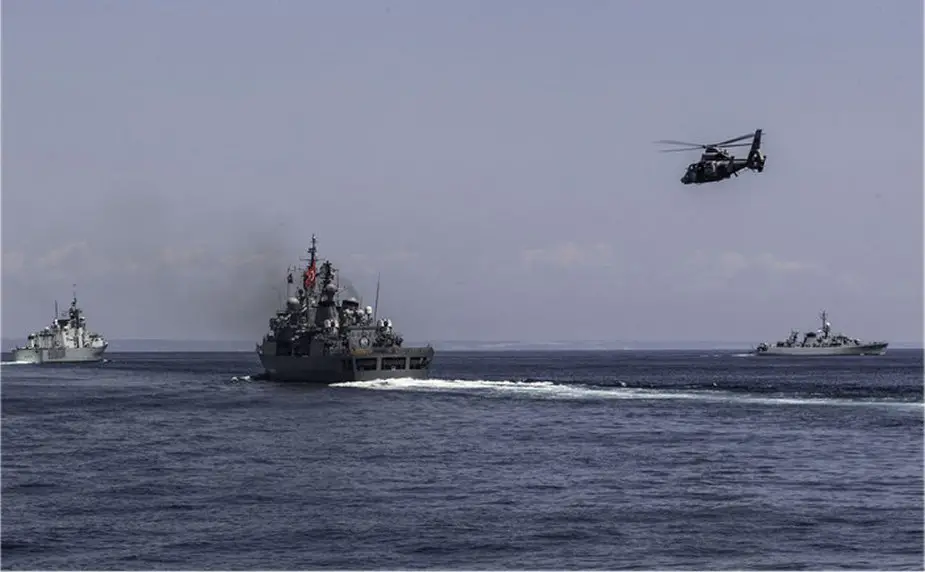Breaking news
Turkey postphoned NATO exercises in Black Sea amid Ukraine crisis.
According to information published by Tass on June 1, 2022, Turkey has canceled or postponed some planned NATO drills in the Black Sea due to the requirements of the Montreux Convention amid tensions between Russia and Ukraine, Turkish Foreign Minister Mevlut Cavusoglu told.
Follow Navy Recognition on Google News at this link
 NATO ships exercise in the Black Sea in July 2019. (Picture source: NATO)
NATO ships exercise in the Black Sea in July 2019. (Picture source: NATO)
The (Montreux) Convention regarding the Regime of the Straits, often known simply as the Montreux Convention, is an international agreement governing the Bosporus and Dardanelles Straits in Turkey.
Signed on 20 July 1936 at the Montreux Palace in Switzerland, it went into effect on 9 November 1936, addressing the long-running Straits Question over who should control the strategically vital link between the Black and Mediterranean Seas.
The Montreux Convention regulates maritime traffic through the Black Sea. It guarantees "complete freedom" of passage for all civilian vessels during peacetime and permits Turkey to restrict the passage of navies not belonging to Black Sea states.
Military vessels are limited in number, tonnage, and weaponry, with specific provisions governing their mode of entry and duration of stay. Warships must provide advance notification to Turkish authorities, which, in turn, must inform the parties to the Convention.
After the Russian invasion of Ukraine on 24 February 2022, the Ukrainian government appealed to Turkey to exercise its authority under the Montreux Convention to limit the transit of Russian warships from the Mediterranean to the Black Sea. At least six Russian warships and a submarine had crossed the Turkish straits in February.
After initial reluctance, attributed to the country's close ties with both Russia and Ukraine, Turkish Foreign Minister Mevlüt Çavuşoğlu announced on 27 February that his government would legally recognize the Russian invasion as a "war", which provides grounds for implementing the Convention with respect to military vessels.
This blockage of naval vessels also applies to NATO powers who cannot now move their vessels from the Mediterranean to the Black Sea.




























